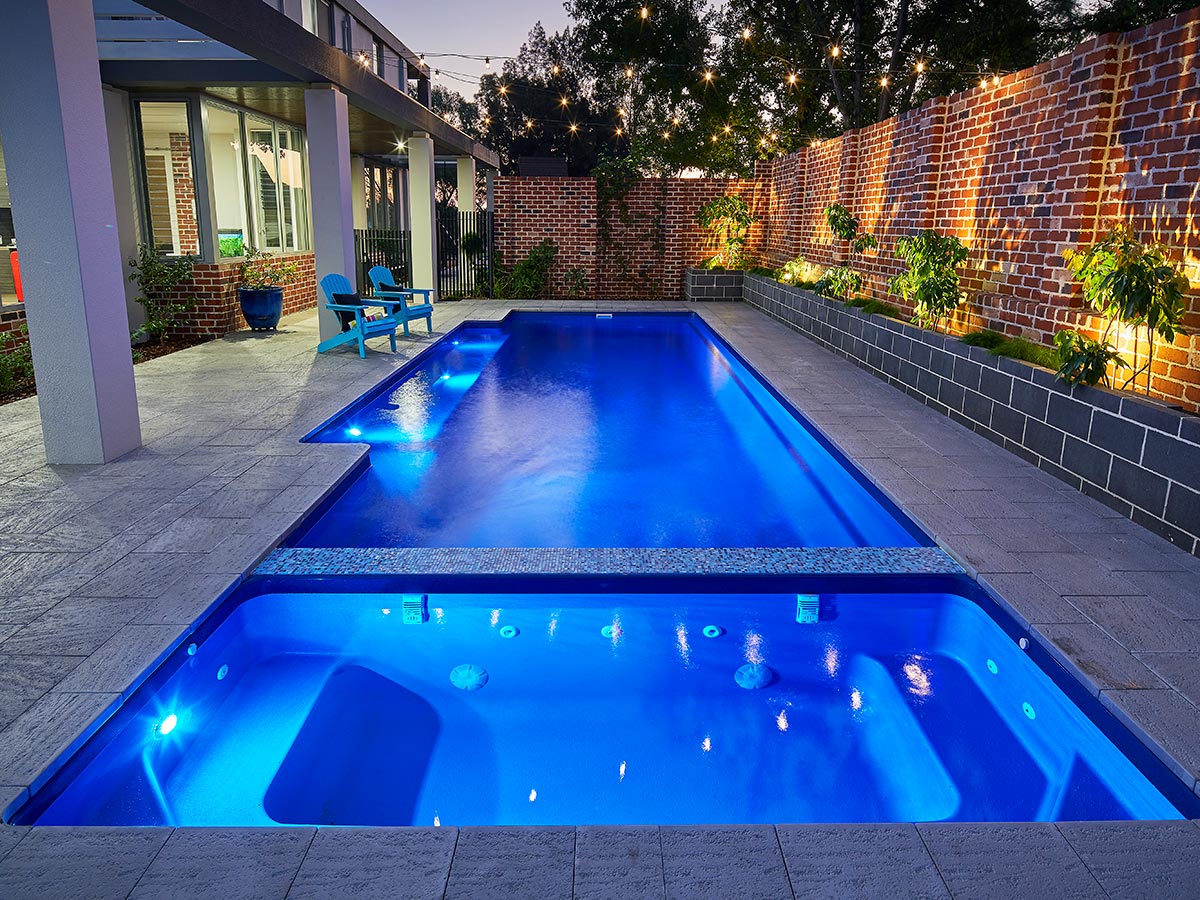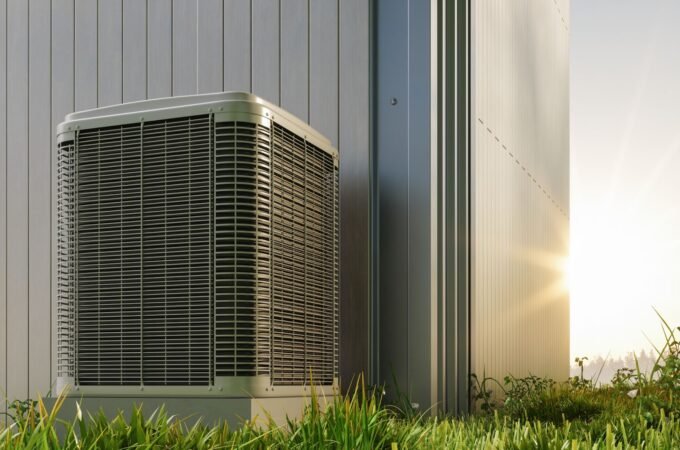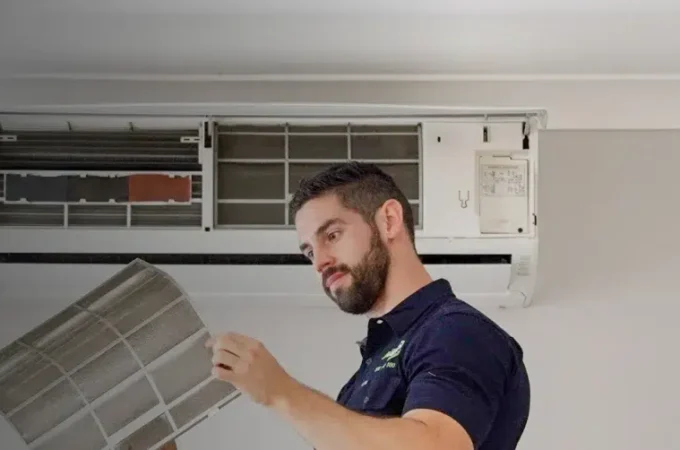
Does Brushing Your Pool Really Make a Difference?
Keeping a pool sparkling clean is hard.
You can’t just toss in a bunch of cleaning chemicals and hope for the best. Cleaning chemicals can only do so much. Proper pool maintenance requires a thorough brushing down every once in a while. There’s no replacement for good old-fashioned hard work.
The three most important Cs when taking care of a pool are cleaning, chemistry, and circulation. Cleaning often takes a backseat because of how difficult it can be, but cleaning a pool really isn’t that hard once you get used to it.
This article will show you how, when, and why to brush your pool and why it makes a difference when you do so.
Why Should I Brush My Pool?
All the algaecide, chlorine, and flocculant in the world can’t clean your pool for you. You need to get in there with a good brush and have at it.
“I have a skimmer, the filter, and a pool cover!“ you say, so why bother brushing at all? Well, how about four reasons to start with?
Brushing prevents algae and ammonia.
Algae loves sticking to surfaces, making the brush its natural enemy. Bacteria linger in the pool water and form little colonies, turning your pool nice and muddy and green. Brushing prevents buildup of algae and stops them from settling down. Algae build up generates ammonia, and that’s reason enough for most people to vigorously scrub their pool without saying a word. You want your pool smelling pristine and clear, not like a truck full of manure.

Brushing prevents permanent stains.
Whether it’s excessive metals turning your pool green, algae, oils, minerals, or dirt, brushing works. The simple act of physically breaking up clumped matter at the floor and walls of a pool prevent the stains from sticking and becoming permanent.
Brushing prevents scale film.
All pools collect dirt and pollen from the outside environment. This dirt settles at the bottom of the pool, and begins building as layers upon layers of scale film. This film is hard to remove with filters and needs to be physically removed.
Brushing prevents etching.
Etching occurs when strong acidic water exposes the insides of the pool surface and structures. The walls and surface are structurally weakened and this poses a danger to the pool and everything around it. Brushing prevents the corrosive etching that happens due to low calcium hardness in a pool.
Now that you know why a pool needs to be brushed, when should you do it?
When Should I Brush My Pool?
There are more than 20,000 types of algae that can grow in your pool water. Every type of algae requires a different type of algaecide. All algae have protective films that act as a protective barrier against chemicals.
Chlorine is used to prevent algae buildup, but it’s no miracle worker.
Chlorine can’t penetrate through the protective layer, but a brush can. A brush destroys clumps of algae, no matter how strong their protective film is. Algae generates ammonia, and that’s reason enough to brush your pool.
Brush your pool 2-3 times a week, 15 minutes each time. This is a simple and effective way to keep your pool healthy and save money in the long run.
What Brush Should I Use?
First determine your pool surface type. Do you have a Fibreglass Pool? A gunite pool? A vinyl pool?
Different types of brushes work for different types of pools. You get stainless steel brushes, nylon brushes, or a combination of the two.
Select stainless steel bristles for gunite pools.
Concrete pools can make do with stainless steel brushes with nylon bristles. Vinyl pools require nylon bristles only.
Take care of your brush no matter what type you use.
Store your pool brush in a safe and cool area. Extreme temperatures can distort the bristles and wear them down.
Most brushes last for 4-5 years if well taken care of.
Keep your brush out of direct sunlight and make sure you don’t leave it in the water.

How Should I Brush My Pool?
Fasten your brush with a good pole and start at the steps. Make your way across the wall, then cover the floor.
Most vacuums can never thoroughly clean the steps, leading to this being a common algae build-up area.
Don’t work the bristle too hard, and use your shoulders to deliver most of the force.
Start on the water line and and push downwards. Slowly work your way towards the bottom curve of the pool.
Use firm strokes and be consistent. When brushing the surfaces clear of algae, remember to brush towards the main drain to disperse the algae in the right direction. Put your legs and back into it, using your wrists as little as possible. Your shoulder should do most of the work, powered by your back and legs. Algae hot-spots can make for especially hard cardio.
The Final Word
Your pool is a long-term investment. It brings you social, physical, and mental health benefits that are impossible to replicate via other means. It’s ideal for athletes, safe for people of all ages, and is psychologically therapeutic as well.
Just like the human body needs its regular maintenance, so does a swimming pool require its regular upkeep. Regular brushing is the price you pay to enjoy all the health benefits of swimming in a pool. Regular brushing significantly improves the lifespan of all pools and keeps you mentally invested in your own health. As long as you devote time and effort into taking care of your pool, you’re likely to keep on using it and reap the health benefits.
Fail to care for your pool and you’ll have to pay the price. Lack of brushing leads to build up of junk, debris, and algae. A dirty pool is demotivating and inaccessible. Eventually, your pool turns dark brown and will require a professional team to drain it and make it usable once again. An ounce of prevention – a little brushing here and there saves you an incredible amount of money in the long run. Brushing can make all the difference.




